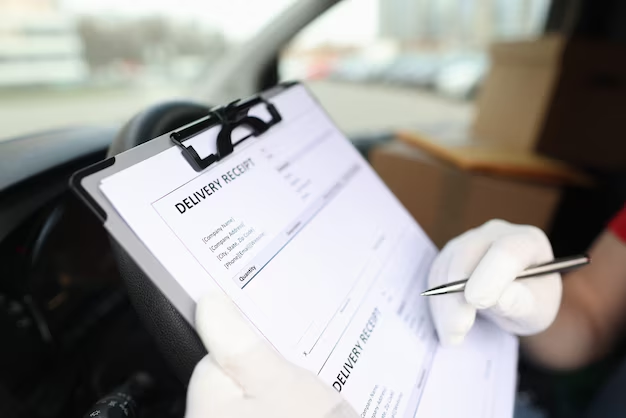Navigating Auto Insurance After a DUI: What You Need to Know
Being charged with a DUI (Driving Under the Influence) can be challenging and life-altering. Among the many consequences, such as legal penalties and potential employment issues, one of the most immediate concerns is how it affects your auto insurance. If you're facing the aftermath of a DUI, understanding the changes in your insurance can seem overwhelming. Let's delve into the impacts, explore your options, and equip you with the knowledge needed to move forward confidently.
Understanding the Impact of a DUI on Your Insurance
Immediate Repercussions
A DUI conviction almost invariably leads to increased auto insurance premiums. Insurance providers view drivers with DUIs as high-risk, leading to higher costs for coverage. But how much more you’ll pay can vary based on factors such as where you live, your driving history, and your insurance provider.
Higher Premiums: Expect an increase ranging from 30% up to 300%. This jump reflects the insurer's need to offset the risk of a high-risk driver.
Policy Non-Renewal: Some insurers might not renew your policy at all, leaving you to seek coverage elsewhere.
Coverage Changes: In some cases, your insurer might reduce coverage options or benefits available, pushing you towards more basic or limited plans.
The SR-22 Form Requirement
For those with a DUI, many states require an SR-22 form — a certificate that verifies you carry the minimum required vehicle insurance. Here are the key points about SR-22:
- What Is It?: It's not an insurance policy but a form filed with the state to confirm you possess enough insurance coverage.
- Duration: Typically, you'll need to maintain the SR-22 for three years, though this can vary by state.
- Cost: Insurers typically charge a nominal fee ($15 to $25) for filing the SR-22, separate from your insurance premium itself.
Options for Affordable Coverage After a DUI
Comparison Shopping
After a DUI, it becomes essential to shop around and compare different insurers. Not all companies view DUIs the same way, so premiums can vary widely. Plus, some insurers may offer specialized plans for high-risk drivers.
- Online Comparison Tools: Leverage platforms that allow side-by-side comparisons of multiple insurance providers.
- Seek High-Risk Providers: Some insurers focus specifically on high-risk policies. Though they might not always offer the lowest rates, they cater to your unique needs.
Discounts and Savings
Even with a DUI, you can take steps to reduce your premiums:
Bundling Policies: Consider combining your auto insurance with another policy, such as homeowners, for a discount.
Increase Deductibles: Opting for a higher deductible can lower your premium. Just ensure it's a feasible amount you can cover in an emergency.
Defensive Driving Courses: Completing a course can demonstrate to insurers your commitment to safer driving and might offer a discount in return.
Alternative Insurance Options
- Non-Owner Car Insurance: If you don’t own a vehicle but need coverage, this option can keep you insured and satisfy the SR-22 requirement.
- Usage-Based Insurance: This involves being monitored by a telematics device. If you’re committed to improving driving habits, it might lower your costs based on actual usage and performance.
Rebuilding Trust: Taking Steps Forward
Demonstrating Responsibility
Post-DUI, building back trust with insurance companies involves demonstrating responsible behavior:
Consistent Payments: Paying your premiums timely helps build reliability.
Clean Driving Record: Avoid further infractions to maintain a positive track record, demonstrating improved judgment and risk management.
Long-Term Strategies
- Time Is Your Ally: Over time, if you maintain a clean record, you may see your rates decrease. Insurers typically review driving history over three to five years.
- Regular Policy Reviews: Continually re-evaluate your insurance needs and adjust policies or providers as needed to ensure you're not overpaying.
Summary of Key Steps and Tips 📝
- Verify SR-22 Requirements: Confirm how long it’s required in your state.
- Compare Rates: Different insurers offer varying rates; use comparison tools!
- Explore Discounts: Bundling, defensive driving courses, and other discounts can lower costs.
- Consider Non-Owner or Usage-Based Insurance: These can be suitable alternatives.
- Maintain a Clean Record: Essential for reducing premiums over time.
What Lies Ahead?
Facing a DUI charge is undeniably tough, especially when it impacts essential services like auto insurance. However, armed with the right information and approach, you can navigate these challenges. Understanding the insurance landscape after a DUI empowers you to make informed decisions, explore all possible avenues for affordable coverage, and ultimately regain control over your driving and insurance future. As you rebuild your driving record, remain proactive about seeking out the best insurance solutions suited to your situation. This period of adjustment, though initially daunting, is a stepping stone to establishing a more secure and responsible driving path.

Related Topics
- Best Car Insurance Providers
- Car Insurance Discounts Explained
- Cheapest Car Insurance States
- Classic Car Insurance Explained
- Collision Vs Comprehensive Coverage
- Gap Insurance Explained
- High-risk Driver Insurance
- How To File a Car Insurance Claim
- How To Lower Car Insurance Rates
- Minimum Auto Insurance Requirements
- Multi-car Policies Explained
- No-fault Insurance Explained
- Rental Car Insurance Explained
- Rideshare Driver Insurance
- Roadside Assistance Coverage
